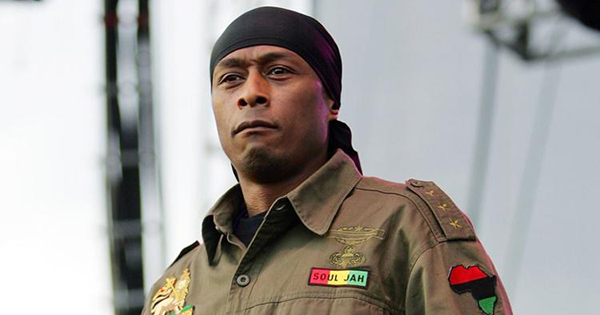
Professor Griff
Nationwide — Thirty years ago, Professor Griff was kicked out of the legendary hip hop group Public Enemy for allegedly making anti-Semitic remarks. Last spring, Griff openly addressed those remarks with members of the Jewish community for the very first time.Professor Griff regularly travels with Khalid el-Hakim, founder of the Black History 101 Mobile Museum, based out of Detroit, MI, and in March of 2019, the two men spent the day at Congregation Ohev Shalom in Wallingford, PA, welcoming and leading community members through the Black History 101 Mobile Museum. The historically powerful and culturally dense display of artifacts covers the eras of slavery, Jim Crow, Civil Rights, Black Power, sports, politics and Hip Hop. The museum’s “Signature Series” exhibit features over 150 original artifacts signed by historical icons including: Booker T. Washington, George Washington Carver, Mary Mcleod Bethune, Paul Robeson, Cab Calloway, Barbara Jordan, Adam Clayton Powell, Shirley Chisholm, Huey P. Newton, Angela Davis, and Colin Kaepernick.
Community members engaged Griff and Khalid in conversations on some of the very difficult material in the exhibit, many not knowing the nuanced history of oppression African Americans endured not only during slavery but through the Jim Crow era and up to present time. Tears flowed from one visitor who was shocked to see sheet music from the 1920’s and 1930’s with prominent Jewish entertainers Eddie Cantor and Al Jolson in blackface. The visitor commented, “I never thought of that history in this type of way. This is an eye-opening experience.”
Controversy surrounding the legacy of blackface recently came under public scrutiny after Gucci and Prada released products featuring images of blackface.
Ohev Shalom is led by Rabbi Jeremy Gerber, who is also a co-founder of FUSE (the Fellowship of Urban-Suburban Engagement), a cross-communal group that seeks to bridge the divide between diverse communities that live near one another. Rabbi Gerber, Professor Griff, and Mr. el-Hakim later shared the stage for a panel discussion, which is part of Ohev Shalom’s and FUSE’s mission of engaging in “courageous conversations.” Rabbi Gerber explains: “Our stories are simultaneously very unique and remarkably similar. We can learn a tremendous amount from one another, and we can see ourselves in each other’s history. Ultimately, we are all stronger when we enter into dialogue, and especially when that discourse is open, honest, raw, and sometimes even painful. That type of conversation forges truly strong relationships.”
Although the invitation was extended a year earlier, the event took place within months of the massacre at Tree of Life Synagogue in Pittsburgh, PA, and even more recent controversy surrounding comments made by MN Congresswoman, Ilhan Omar that were interpreted by many as anti-Semitic.
Professor Griff accepted the invitation as an opportunity to address the controversy that has followed him for the majority of his career. Griff expressed his gratitude for being invited and made it clear to the audience that although his revolutionary message has been critical of the music industry, politics, and economic inequality in Black neighborhoods, that his message was never intended as anti-Semitic. He rejects the idea that he himself is anti-Semitic.
Griff states, “The majority of my career I’ve been labeled as a hater of Whites and Jews, in particular, because of my position on the music industry. So, when I was presented with an invitation by Khalid and Rabbi Gerber to sit on a panel to discuss Black and Jewish relationships, I accepted it immediately. I reflected on what would be the most effective way to get both Black and Jewish people to understand, my position on the music industry and how to heal from some of the mis-understandings of the past. I wanted the panel discussion to be an honest and transparent dialogue. If both communities are to begin to heal, we must be bold and honest in our approach to this complexing issue.”
The one-day exhibit and panel discussion ended with a standing ovation and audience members thanking the three men for taking on such an important task of educating people and working towards reconciliation. The panelists agreed that there is still much work to be done, but all three are committed to staying in open dialogue with one another, in the spirit of truth, honesty, and community building. This event was part of the Black History 101 Mobile Museum’s national tour that has made over 50 stops in 19 states this year.
For more information on the Black History 101 Mobile Museum featuring Professor Griff, please contact: Kris Bell, PR at newrisingsun99@yahoo.com or www.blackhistorymobilemuseum.com
For more information on Ohev Shalom or FUSE, please visit www.ohev.net or www.fusedelco.com
